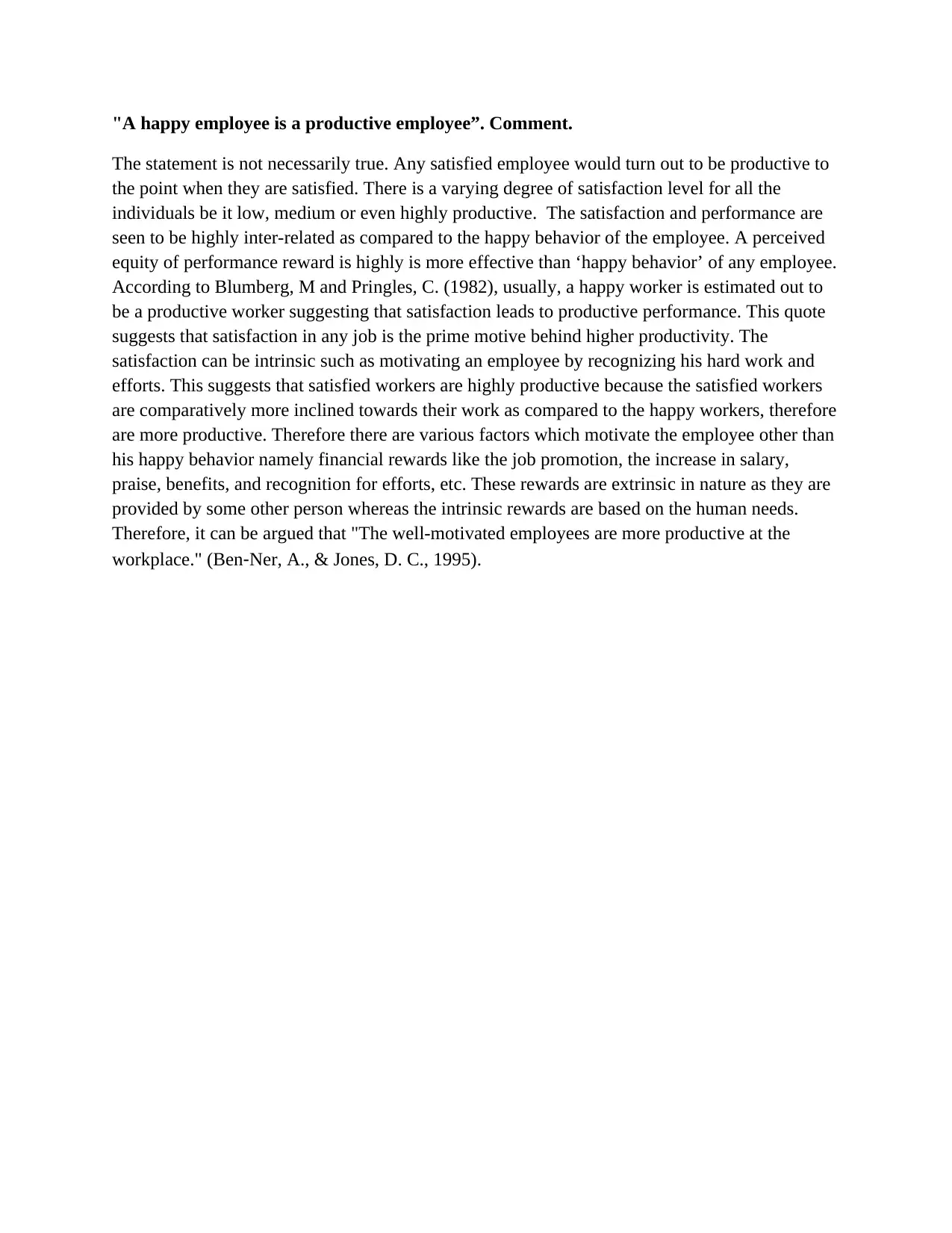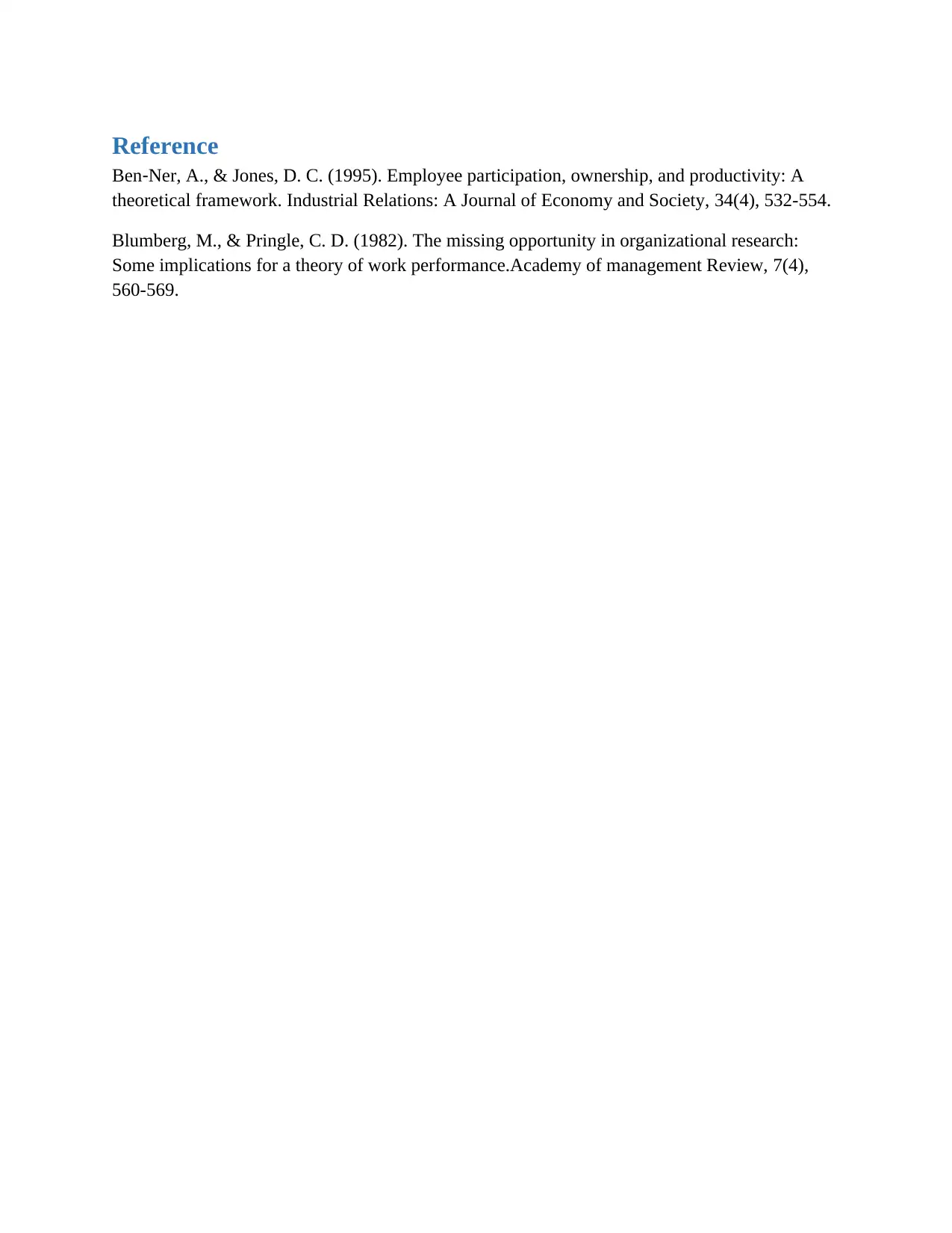Employee Performance and Satisfaction: A Detailed Report
VerifiedAdded on 2019/10/18
|2
|375
|353
Report
AI Summary
This report delves into the intricate relationship between employee satisfaction and productivity, challenging the notion that a happy employee is always the most productive. It argues that while satisfaction plays a crucial role, it is not the sole determinant of performance. The report explores various factors that influence productivity, including intrinsic and extrinsic rewards, such as recognition, salary increases, and benefits. It references Blumberg and Pringle's work on the link between satisfaction and productivity and Ben-Ner and Jones' research on employee participation and productivity. The report emphasizes that well-motivated employees, whether through financial incentives or recognition, are more productive. It highlights that the satisfaction level can vary, and the perceived equity of rewards is more effective than just 'happy behavior'. The report concludes that a holistic approach considering both satisfaction and motivational factors is essential for enhancing employee performance.
1 out of 2







![[object Object]](/_next/static/media/star-bottom.7253800d.svg)